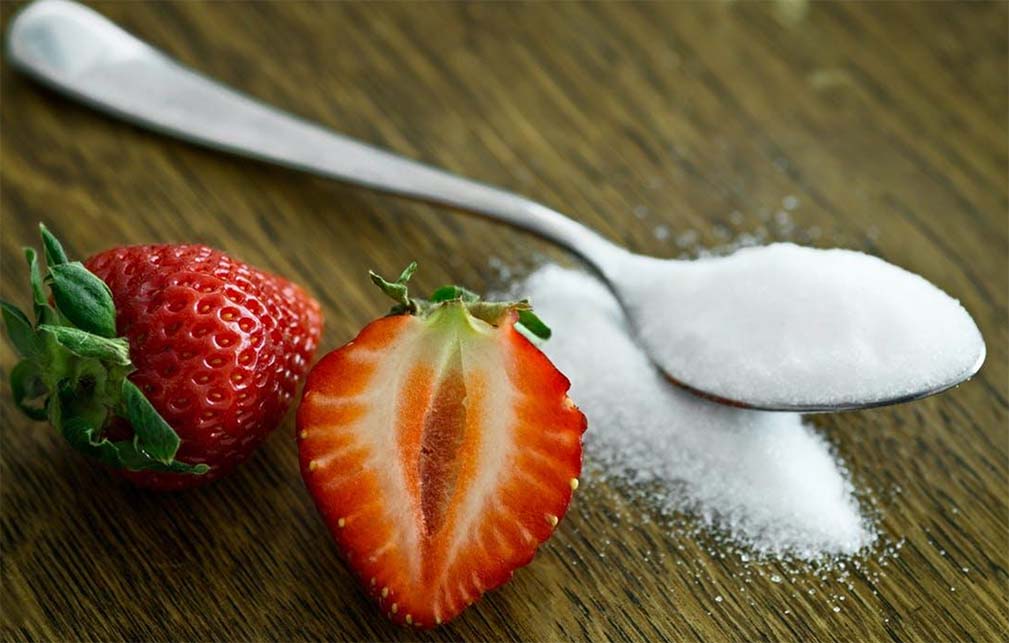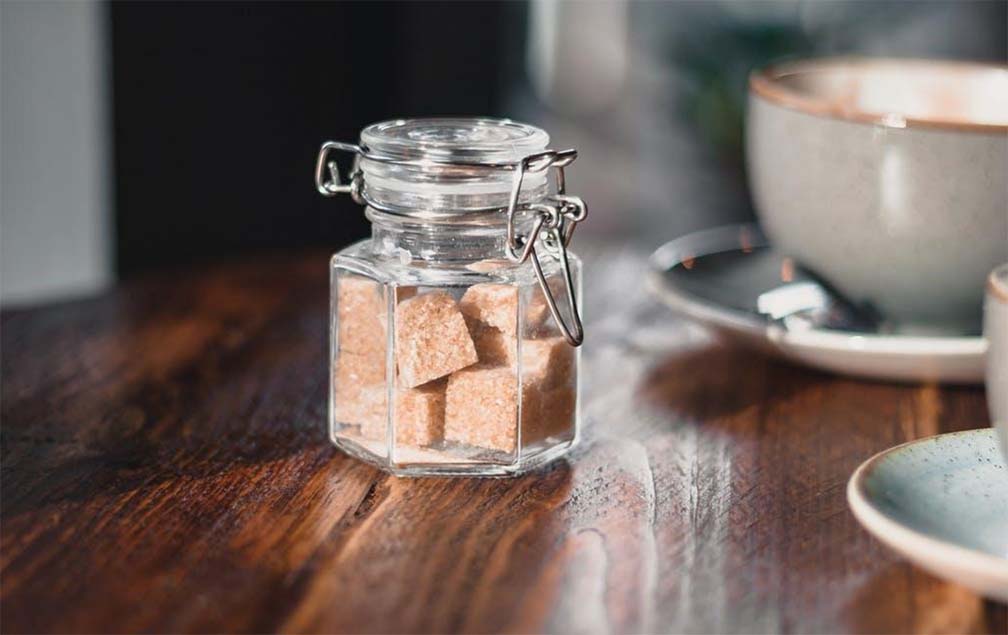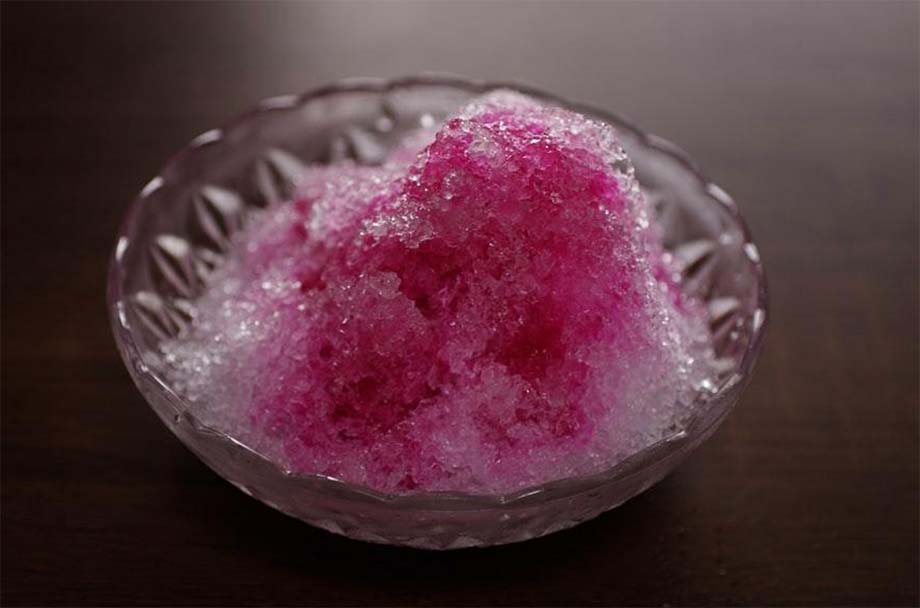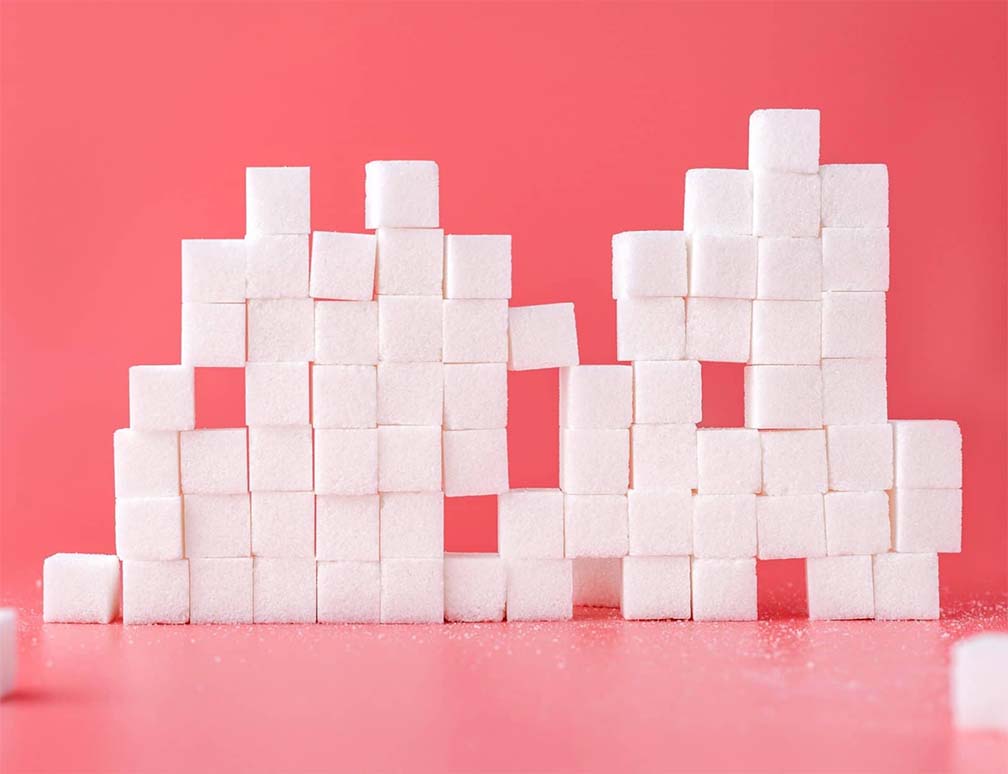Healthy Living
Good and Bad Sugar: Everything You Need to Know
Description: Sugar is one of the most consumed foods. Many people know that sugar addiction’s effect on the body and brain is ambiguous. How does sugar affect you? What are sugars to consume and the ones to avoid? Find out in our article.
You’ve probably heard of healthy and unhealthy fats, but what about the varieties of sugar? Sugar is a carbohydrate found in almost all foods. An example of good sugar is a variety of fruits and vegetables. In addition to sugar, fruits contain dietary fiber, vitamins, and minerals.

Bad sugar addiction and the reason of obesity is refined sugar, which is found in sweet soda, candies, and processed foods. For example, the average American consumes about 22 teaspoons of sugar daily. Many of us suffer from sugar addiction side effects without even realizing it.
Amazing data, isn’t it? In this article, we’ll look at the effects of excess sugar on the body and find healthy alternatives.
The Truth about Sugar
Sugars are a very large group of organic substances found not only in the familiar refined sugar. This term summarizes the range of low molecular weight carbohydrates found in many foods. Glucose, lactose, fructose, and other sugars form an important part of our diet. Avoiding them is hard for many reasons, but you can choose those sugar-containing products that look most valuable to the body or at least not harmful.
These include sugars with a low glycemic index, minimally affecting the change in blood glucose levels. Low GI carbs are more slowly absorbed and cause smaller and slower increases in insulin levels.
Sugar addiction causes obesity, and heart health depends on sugar amount. Some experts believe that it was sugar, not fat, that led to the obesity epidemic. Sugar quickly saturates the body with calories but does not bring benefits. To process large amounts of sugar, the body consumes nutrients, affecting your health and decreasing your immunity. Sugar addiction affects the brain and all body systems; there is even a connection between sugar addiction and depression.

Excessive consumption of sugar causes a short-term spike in blood sugar levels, but then a decline occurs, accompanied by fatigue. It means that you want sugar again. This vicious cycle leads to sugar addiction, obesity, and chronic disorders such as heart disease and diabetes.
Sugars to Eat and Avoid
All sweeteners are divided into two types – natural and artificial.
Natural ones are obtained by processing products of natural origin (from plants). Artificial sugars are produced in chemical laboratories. Both have their advantages and disadvantages. To understand which sweetener is right for you, you need to be clear about the reasons for avoiding refined sugar. Is it the desire for more healthy nutrients, fighting sugar addiction, and dieting for weight loss, fashion, taste preferences, or a diagnosis in your medical record? In the latter case, the choice of a sweetener should be taken especially seriously.
The Truth about Artificial Sweeteners
People who avoid sugar use artificial sweeteners because they think they are healthier. But sometimes, these foods can be even worse than regular sugar.
The most common artificial sweetener is sucralose. Although the product itself does not contain calories, scientists have proven its harmful effects on the body.
Sucralose reduces beneficial gut bacteria, limits the absorption of therapeutic drugs, and releases potentially toxic compounds when heated. Also, the use of sucralose directly affects the inflammatory processes in the intestines.
In the Trends in Endocrinology and Metabolism Study, sucralose was identified as a cause of highly dangerous diseases such as type 2 diabetes, heart disease, obesity, and metabolic syndrome.

Natural Sweeteners
We recommend natural sweeteners that are obtained by processing various plants. They are absorbed in the intestines and enter the bloodstream, changing their composition and insulin levels. Some of these sweeteners are high in calories and have a glycemic index (as opposed to artificial ones). For example, ordinary refined sugar’s calorie content is 387 kcal per 100 g of product, and its glycemic index is 60–65. Sugar addiction affects the body, but natural sweeteners are good because they are not “empty” sugar but contain healthy substances.
Fructose
It is perhaps the best-known natural sugar, found in a wide variety of foods (mainly fruits), and the sweetest of natural sugars.
Pros: fructose is twice as sweet as sugar, making it possible to halve the amount of its consumption; has a low glycemic index (23), is allowed for people with diabetes in moderation, and undergoes heat treatment.
Cons: high-calorie (about 400 kcal); in excess, it has a bad effect on the functioning of the liver, heart, and blood vessels.
Erythritol
Sugar alcohol is obtained from some plant species (corn, melon, pumpkin, etc.). It almost does not interact with the human body and is completely excreted in a day.
Pros: low-calorie (20 kcal), does not affect blood sugar (0 GI), does not cause insulin spikes, withstands heat treatment, is suitable for baking, and is recommended for people with diabetes.
Cons: not recommended for pregnant women and children, allergic.

Sorbitol
This sugar alcohol derived from glucose is known as the E420. The human body almost completely absorbs it. It occurs naturally in fruits (apples, pears, plums) and algae.
Pros: Low glycemic index (10), approved for people with diabetes.
Cons: high-calorie (350 kcal), 40% less sweet than sugar; if the dosage is exceeded, it can unfavorably affect the gastrointestinal tract.
Xylitol
Sugar alcohol obtained from plants is known as the E967 additive. Reacts with the human body, metabolized by the liver.
Pros: low glycemic index (13), recommended for people with diabetes, has a positive effect on dental health.
Cons: high-calorie content (367 kcal), overuse causes digestive problems and leads to obesity.
Stevioside
Research has proven that stevia is completely safe. It contains no calories, is 300 times sweeter than sugar, and does not raise blood sugar levels. Some studies suggest that stevia is recommended for hypertension.
But this herbal remedy lowers blood pressure and can also react with anti-inflammatory, anti-cancer, antifungal, and other medications, so you should consult your doctor before consuming stevia.
Pros: about 300 times sweeter than sugar, has no glycemic index and contains 0 kcal, recommended for people with diabetes.
Cons: specific taste and aftertaste.
Inulin
An organic compound derived from chicory, agave, and Jerusalem artichoke; it is also found in many colors.
Pros: not very high in calories (150 kcal), recommended for people with diabetes.
Cons: May cause digestive upset and allergies.

Conclusion
The World Health Organization, concerned with the fact that sugar addiction can cause diabetes, has revised the norms for sugar, halving them at once. Instead of 10 percent of sugar from a total number of calories, only 5 percent has become the norm. That’s about 25 grams of sugar (6 spoons). At the same time, do not forget that half of it is already included in different foods: sauces, bread, sausages, milk, even oatmeal.
We recommend that you opt for natural sugar found in honey and fruits to avoid sugar addiction. The body needs this sugar in small doses for normal functioning. And it is better to pamper yourself with cakes, jam, and sweets only occasionally, taking care of your health and figure.
Have you experienced sugar addiction and mood swings? Do you count carbs? What types of sweeteners do you prefer? Please share your experience in the comments below.
Author’s Bio
Thomas Nemel is a health & fitness enthusiast as well as a passionate writer and one of the authors at Gym Expert. He likes to motivate other people to live healthy and fulfilling life.

